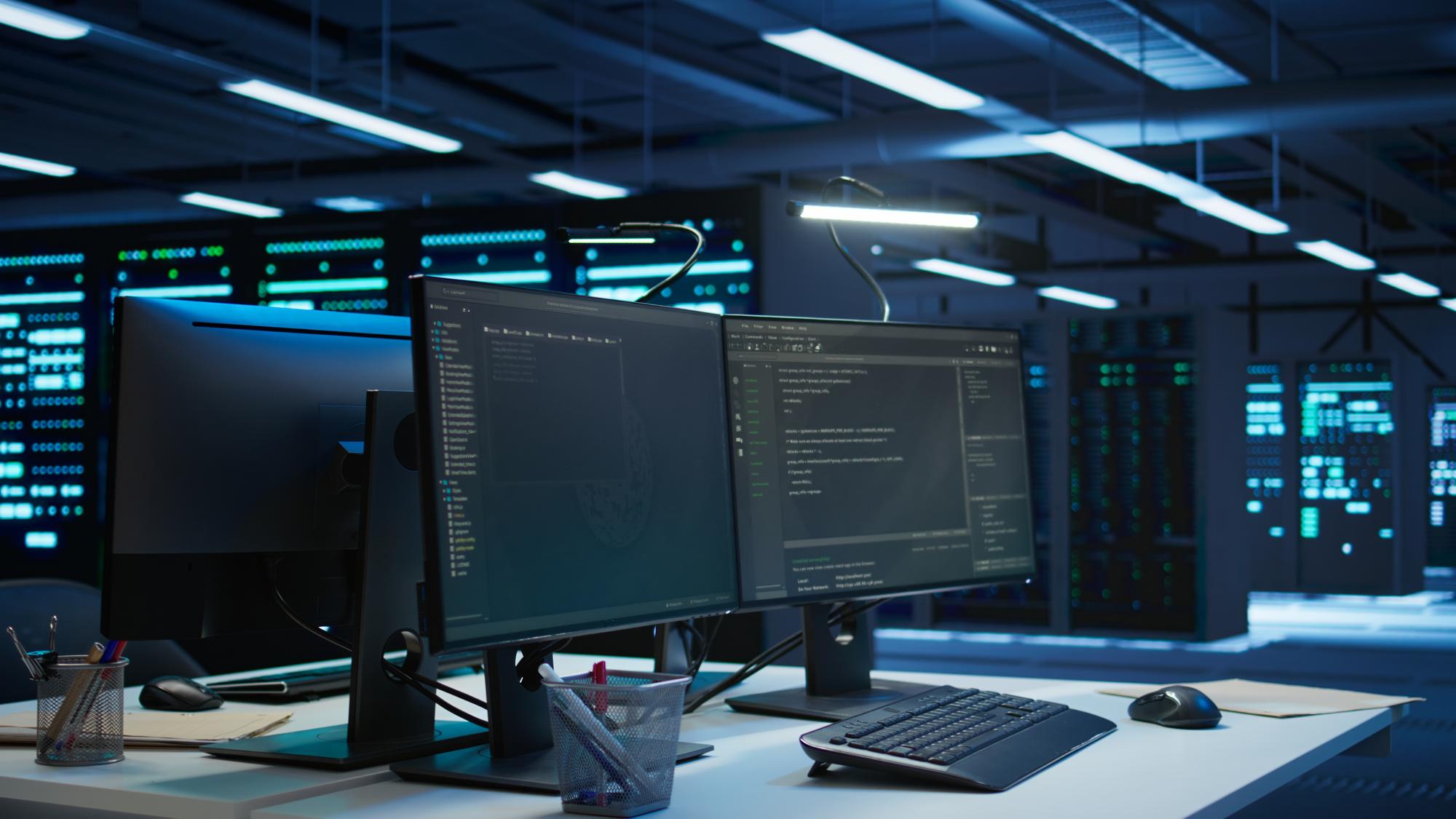The incorporation of digital technologies in healthcare systems has enormously improved the operational efficiency, safety of patients, and care quality. Among these critical systems, hospital dietary management software performs a vital yet undervalued function. Hospital dietary systems oversee patient meal orders, nutritional data analysis, food stock, and diet-specific meal planning. With more hospitals relying on networked technology, the vulnerability to cybersecurity threats in healthcare increases enormously. Knowing the specialized cybersecurity threats related to hospital diet systems is the key to keeping patients safe, data confidential, and compliant with regulations.
The significance of healthcare cybersecurity cannot be disputed. As the healthcare industry is a continuous target because of the sensitive nature of patient information, dietary management software is a special risk category. Cyber-attacks on diet systems may undermine nutritional data integrity, pose patient health risks through improper dietary prescriptions, and cause serious operational downtime.
Understanding Hospital Dietary Systems
Hospital nutrition systems usually have several interconnected parts, such as patient meal-ordering software, nutritional analysis platforms, automated inventory management solutions, and integration with Electronic Health Records (EHR). Computer-based meal-ordering interfaces provide personalized diet adherence for patients, having a profound impact on patient outcomes, especially for patients with allergies, diabetes, or special nutritional requirements. Inventory management provides food safety, monitoring food items' purchase, storage, expiration, and timely delivery. Nutrition analysis platforms are essential, as they offer diet information directly linked to patient files to track health and recovery.
The coupling of diet software with larger hospital IT systems renders these platforms extremely vulnerable. Such vulnerabilities highlight ''why cybersecurity is important for the healthcare industry'' because diet systems become vulnerable gateways for more extensive cyber-attacks that could breach hospital-wide patient information.
Specific Cybersecurity Risks in Dietary Systems
There are several cybersecurity risks in healthcare specifically pertinent to dietary systems:
Data Integrity and Manipulation
One major concern is the integrity of data. The hackers can hack patient diet details, and such manipulation may result in extreme harm to the patient, allergic attacks, or lack of proper nutrients. For instance, compromised dietary orders in EHR might result in providing an allergenic meal to a patient with sensitivities. Such damage highlights the urgency of cybersecurity healthcare protocols, especially for dietary software.
Supply Chain Attacks
Supply chain weaknesses in dietetic inventory control present real threats. Automated dietetic inventory program hackers could throw food ordering schedules into disarray, lead to shortages, or have spoiled foods unknowingly served. Automated dietary inventory-dependent hospitals are at greater cybersecurity threats in healthcare since disruptions could affect patient care directly and recovery schedules.
Privacy Breaches
Patient nutrition data, commonly included within extensive health histories, constitutes confidential information. An intrusion in nutritional management software may compromise protected health information (PHI), thus causing serious violations of healthcare cybersecurity laws. Privacy invasions such as these not only threaten patient confidence but make healthcare organizations liable to serious financial and legal penalties.
Operational Disruptions
Dietary systems are susceptible to operational interference by ransomware or denial-of-service (DoS) attacks. Such interferences may result in considerable delays in meal preparation and delivery, adversely affecting patient satisfaction and clinical outcomes. Aware of cybersecurity issues in healthcare, hospitals need to realize that dietary management systems have a direct bearing on patient health, and thus their cybersecurity is an integral part of hospital operations.
Advanced Technical Analysis of Vulnerabilities
Hospital diet systems are typically hacked by certain technical weaknesses. These vulnerabilities commonly consist of vulnerable APIs, inadequate authentication controls, non-patched software, and weak endpoint security controls. Cyber attackers target these vulnerabilities to access systems without permission, emphasizing the imperative need for sound hospital cybersecurity measures.
- Weak authentication controls tend to facilitate unauthorized modifications in dietary orders.
- APIs in diet software are susceptible to injection attacks and thus manipulation of food orders or nutritional information.
- Endpoint security vulnerabilities within patient kiosks or mobile ordering tablets can serve as points of entry for more extensive hospital network attacks.
Hospitals need to know exactly how cybersecurity works in these systems, implementing advanced technical measures to avoid these vulnerabilities being exploited.
Advanced Preventive and Protective Measures
The introduction of complete healthcare cybersecurity best practices specifically for dietary systems is necessary. Suggested preventive methods include:
- Implementing strong role-based access control (RBAC) to restrict dietary system access solely to the approved staff.
- Conducting frequent specialized penetration testing and vulnerability scans.
- Using encryption for dietary data at rest and in transit.
- Real-time monitoring of dietary transactions through high-end threat detection software.
Implementation of these special controls is vital to prevent cybersecurity risks in healthcare with secure dietary management processes.
Specialized Case Studies: Dietary System Cybersecurity Incidents
Incident Analysis 1: Exploit in Dietary Inventory Management API
A large city hospital had a major cyber event when attackers took advantage of vulnerabilities in dietary inventory management software APIs. Attackers manipulated inventory information, leading to inaccuracies in food stock and spoilage of perishable foods, directly affecting patient meals. The event was a prime example of major cybersecurity challenges in healthcare involving dietary systems. The recovery of the hospital included strengthening endpoint protection, adding API gateway security controls, and providing extensive staff training specifically on dietary system security.
Incident 2: Patient Dietary Data Breach through Third-Party Integration
Yet another hospital faced a critical data breach because of third-party dietary software integration vulnerabilities. The attackers infiltrated sensitive dietary information and patient data, which resulted in severe compliance issues regarding healthcare cybersecurity regulations. The incident highlighted third-party vendor risk management vulnerabilities. Post-incident remediations involved imposing stringent security measures on vendor integrations, robust compliance auditing, and segmented network architecture to avoid further breaches.
These case studies expose expert vulnerabilities specific to diet management systems, highlighting why cybersecurity is important in healthcare even for apparently unimportant hospital operations.
Compliance and Regulatory Considerations
Adherence to healthcare cybersecurity standards and regulations, including HIPAA and FDA standards, is specifically essential in dietary management cybersecurity. Hospitals are required to safeguard patient dietary data integrity and confidentiality carefully. Failure to comply can invite heavy financial penalties, business disruption, and reputation loss. Hospitals need to have regular audits, impose compliance documentation, and incorporate dietary system cybersecurity practices into their overall cybersecurity strategic plan.
Advanced Future Outlook and Specialized Recommendations
As the health industry incorporates newer technologies such as artificial intelligence (AI) and blockchain into nutrition systems, new cybersecurity threats arise. Deep predictive analytics fueled by AI has the capability to greatly increase threat detection ability. Blockchain may be used to provide safe and immutable nutrition data records, limiting risks of manipulation. Hospitals should adopt a Zero Trust model of cybersecurity specifically for diet management in order to strengthen security overall.
Expert recommendations include:
- Formulation of dietary-system-specific incident response plans.
- Customized cybersecurity training for dietary staff.
- Incorporating predictive analytics for real-time threat identification in dietary management software.
- Regular interaction between dietary management teams and hospital cybersecurity staff.
The adoption of these personalized recommendations places hospitals in a strategic position to fight emerging healthcare cybersecurity threats that specifically target dietary systems.
Protect Your Hospital's Dietary Systems from Cyber Attacks
The importance of hospital dietary system security in the overall context of healthcare cybersecurity cannot be overemphasized. Hospitals need to give top priority to comprehending and addressing these specialized cybersecurity threats to ensure patient health, data integrity, and business continuity. By adopting focused strategies in line with prevailing cybersecurity trends in healthcare, hospitals can ensure strong dietary system security, thereby enhancing patient safety, confidence, and adherence to stringent regulatory requirements.
Healthcare cybersecurity is critical, particularly for susceptible dietary systems. Stop cybersecurity threats in healthcare from affecting patient safety, compliance, and hospital performance. Gini offers expert cybersecurity for healthcare dietary management software with customized protection for your vital systems. Apply healthcare cybersecurity best practices today—contact Gini and protect your dietary systems from emerging threats and cyber attacks.






